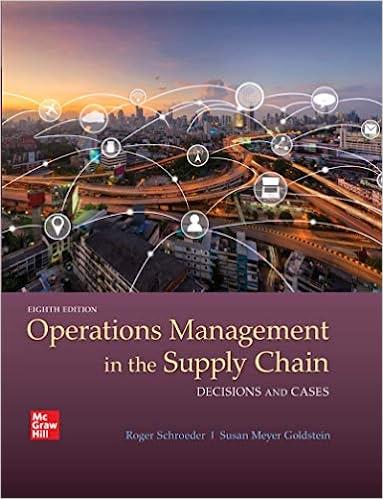Answered step by step
Verified Expert Solution
Question
1 Approved Answer
An entrepreneur has a venture that will make either $ 1 0 0 M or $ 0 . The chance that this venture will make
An entrepreneur has a venture that will make either $M or $ The chance that this
venture will make $M depends on the effort level expended by her: If she tries hard, the
chance of the $M outcome is If she does not, the chance of this outcome is
This entrepreneur is risk averse, with utility function: x disutility of effort, where the
disutility of effort is if the entrepreneur does not try hard and if she does.
a Assuming this entrepreneur bears all the risk of this venture, will she try hard or not?
What will be her expected utility, net of the disutility of effort if any
b A riskneutral venture capitalist is prepared to support this venture. Riskneutrality
means that the venture capitalist cares only about expected profit average weighted by
probabilities of net gains Specifically, the venture capitalist will pay the entrepreneur
a base amount B up front, in return for which the venture capitalist will retain X out
of the $M the venture generates, if the venture succeeds. Assuming this venture
capitalist is the entrepreneurs only alternative to doing it alone doing whatever you
determined the answer was in part a and assuming the venture capitalist can make
part of his contract with the entrepreneur a specification of her effort level, what is
the optimal contract of this sort for the venture capitalist to write? What will be the
venture capitalists net expected monetary value with this contract?
Hint: Notice that the venture capitalist VC is risk neutral, while the entrepreneur
E is riskaverse. Thus the optimal contract will have the VC bear all the risk, with
X$M With the VC receiving all the profit in case of success, your task is simply
to find B that makes E just willing to go through the VC instead of bearing the risk of
this venture himself without VC as in Part a of the exercise You should do this
both for a contract that stipulates low effort and one that stipulates high effort, and
see which is most profitable to the VC
c Unhappily, the venture capitalist cannot contractually specify the effort level of the
entrepreneur. If the venture capitalist wishes to motivate the entrepreneur to try hard,
he must do this with the terms B and X in the contract he provides. The purpose of
this question and the next is to figure out the best contract for the venture capitalist to
offer the entrepreneur, assuming that if the entrepreneur does not accept this contract,
she is stuck doing it alone on this venture.
Hint: The optimal contract BX in this exercise must satisfy two key inequalities:
i E wants to perform high effort, and ii E prefers performing high effort under the
contract BX instead of bearing the risk of this venture himself without VC as in
Part a of the exercise Write these two inequalities.
d Use c to fully solve for the optimal contract. To do this, remember that the two
inequalities you have found so far must be satisfied with an equality as we discussed
in the salesperson example So you get two equations that will determine the two
unknowns the B and the X
Step by Step Solution
There are 3 Steps involved in it
Step: 1

Get Instant Access to Expert-Tailored Solutions
See step-by-step solutions with expert insights and AI powered tools for academic success
Step: 2

Step: 3

Ace Your Homework with AI
Get the answers you need in no time with our AI-driven, step-by-step assistance
Get Started


